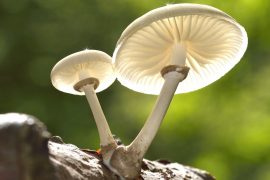
How your friends' genes can alter the course of your life
“Choose your friends wisely.” This timeless piece of advice usually passed on from generations may seem like mere words of wisdom, but a recent study led by Rutgers Health Professor Jessica E. Salvatore proves that there’s actually some solid science and genes behind it.
Your friends’ genes matters
According to the findings of the study, the genetic traits of your high school best friend might have impacted your risk for addiction and psychiatric disorders in your later life.
“Peers’ genetic predispositions for psychiatric and substance use disorders are associated with an individual’s own risk of developing the same disorders in young adulthood,” explained Professor Salvatore.
What this essentially means is your pals’ genes could have determined your own mental health.
Social genetic effects
Believe it or not, our genes do not operate in a vacuum. They are influenced by a variety of factors, including the people we hang out with.
This interaction between a person’s genetic makeup and the genes of their social circle is called socio-genomics, a budding branch of genomics.
To put this theory to the test, Salvatore and her team delved into a mass of Swedish national data for assessing peer social genetic effects for multiple psychiatric disorders.
Decoding the data
An armory of information was available with the researchers, thanks to an anonymous database of over 1.5 million Swedish individuals born in the timeframe between 1980 and 1998.
By studying patterns in the location, school, and medical and legal records related to substance use and mental health, the experts were able to discern interesting trends.
Friends, genes, and disorders
The main objective of the study was to assess whether the genetic predisposition of a peer group could predict the likelihood of members developing substance abuse, major depression, and anxiety disorders in adulthood. This predisposition was gauged using family genetic risk scores.
Even when factors like individual genetic propensities and family socioeconomic factors were taken into account, a clear correlation emerged between peers’ genetic predispositions and an individual’s chance of developing a disorder.
The implications of the study are profound and reshape our understanding of the onset of psychiatric disorders.
“Peer genetic influences have a very long reach,” noted Salvatore. This implies that intervention strategies for such disorders need to extend beyond individual risk and encompass social and network-based aspects.
Further research is needed
As the field of socio-genomics expands, there lies a significant opportunity for further exploration into how our genes interact with our social networks.
The findings of Salvatore’s study open the door for additional research, particularly in diverse populations and varied cultural contexts. It is essential to investigate how different lifestyles, community dynamics, and social structures influence genetic predispositions across individual groups.
By expanding this research, we can gain deeper insights into the mechanisms behind psychiatric disorders and potentially identify novel intervention points that consider the complete human experience – where genetics and social connections weave together.
More questions than answers
Despite these breakthrough findings, many questions remain unanswered. Salvatore highlights the need for further research to comprehend why these connections exist.
“The most obvious explanation for why peers’ genetic predispositions might be associated with our own well-being is the idea our peers’ genetic predispositions influence their phenotype, or the likelihood that peers are also affected by the disorder,” noted Salvatore.
“But in our analysis, we found that peers’ genetic predispositions were associated with target individuals’ likelihood of disorder even after we statistically controlled for whether peers were affected or unaffected.”
Moreover, it is crucial to understand how to best disrupt the long-reaching processes and risks that extend for over a decade after school attendance.
In a nutshell, whether we realize it or not, our friends’ genes may have been pulling the strings of our genetic destiny in more ways than we can imagine. It’s an intriguing field of study that is yet to reveal all its secrets.
As the famous poet John Donne once said, “No man is an island, entire of itself; every man is a piece of the continent.” And it seems in the light of socio-genomics, we’re pieces of our friends as well.
The study is published in the journal American Journal of Psychiatry.
—–
Like what you read? Subscribe to our newsletter for engaging articles, exclusive content, and the latest updates.
Check us out on EarthSnap, a free app brought to you by Eric Ralls and Earth.com.
—–













